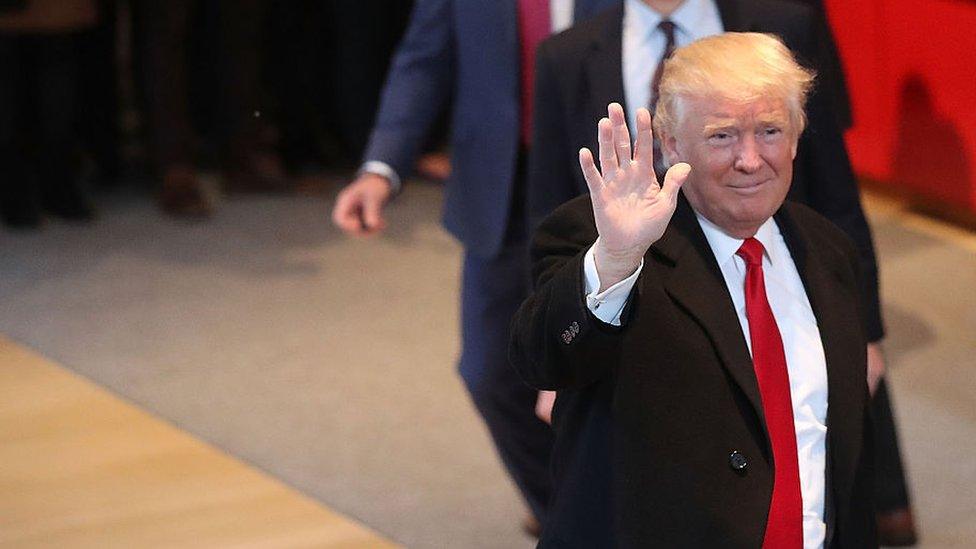US election 2016: Could recounts change result?
- Published
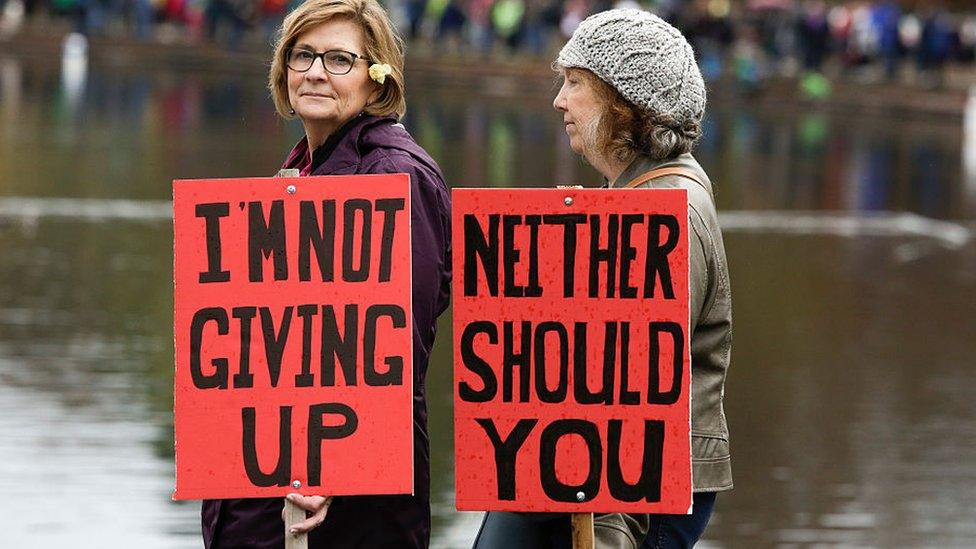
Green Party candidate Jill Stein is attempting to engineer a recount of presidential ballots in three "Rust Belt" states won by Donald Trump in the 2016 presidential election.
Could this process reveal evidence of election fraud or even hand the presidency to Hillary Clinton? That seems highly unlikely.
But it hasn't prevented more than a bit of wild speculation, a Twitter tirade by the next White House incumbent and a flurry of lawsuits from both sides of the political divide.
Here's everything you need to know about the presidential election drama that just doesn't want to end.
Which states are involved?
The Green Party-backed recount campaign is focused on three states that Mr Trump won - Wisconsin (by 22,177 votes), Michigan (10,704 votes) and Pennsylvania (71,313 votes).
The review of ballots has already gone ahead in Wisconsin, but has yet to proceed in the other two states.
All three states account for 46 votes in the Electoral College, more than enough to tip the election to Mrs Clinton if they moved from Mr Trump's column to hers.
According to federal law, all recounts have to be concluded within 35 days of the election.
Will it change anything?
If Clinton supporters are working through their post-election grief, the millions of dollars that have poured in for recount efforts show that many are still firmly in the denial stage.
For Mrs Clinton to be declared the victor would require a swing of more than 100,000 votes across the three states - a move that would dwarf all previous recount results.
A Green Party-requested effort in Ohio in 2004 resulted in Democrat John Kerry netting a grand total of 285 votes more than President George W Bush, for instance.
The infamous Florida recount battle of 2000 involved shifts in the vote count measuring in the hundreds.
Even Ms Stein concedes that the recounts will not likely alter this election's outcome.
"These recounts are part of an election integrity movement to attempt to shine a light on just how untrustworthy the US election system is," she wrote on her website.
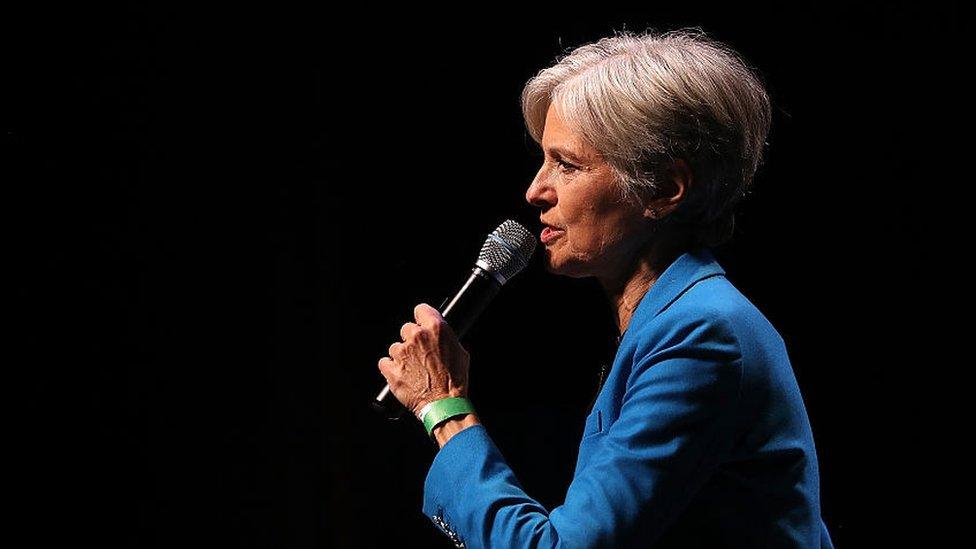
Jill Stein has raised more than $6m to fund recount efforts in three states
There's also the possibility that the recount, while not affecting enough votes to help Mrs Clinton, could reveal the results were tampered with, possibly by foreign hackers.
Although the Obama administration has said that there is no evidence to support this, there are indications that Russian-based hackers had probed voter databases in Arizona and Illinois earlier this year and were responsible for releasing private emails from high-level Democratic Party and Clinton campaign officials.
According to J Alex Halderman, a University of Michigan computer science professor, that's more than enough reason to support Ms Stein's recount efforts.
"Examining the physical evidence in these states - even if it finds nothing amiss - will help allay doubt and give voters justified confidence that the results are accurate," he writes on the website Medium.
"It will also set a precedent for routinely examining paper ballots, which will provide an important deterrent against cyber-attacks on future elections."
Of course, that doesn't really explain why Ms Stein is requesting a recount in Pennsylvania - where getting any kind of a meaningful information will be difficult.
Why is Pennsylvania different?
Unlike Wisconsin and Michigan, most of Pennsylvania's voting machines leave no paper trail - so there's nothing physical to count.
One voting expert told the Los Angeles Times that a Pennsylvania recount would be a "nightmare scenario" requiring each of the state's 1980s-era voting machines to be individually accessed and their results retabulated.
The relatively archaic nature of the Pennsylvania machines does have a benefit, however.
Given that they are not connected to the internet, they would have to be individually hacked in order to alter their results - a daunting task for the most enterprising meddler.
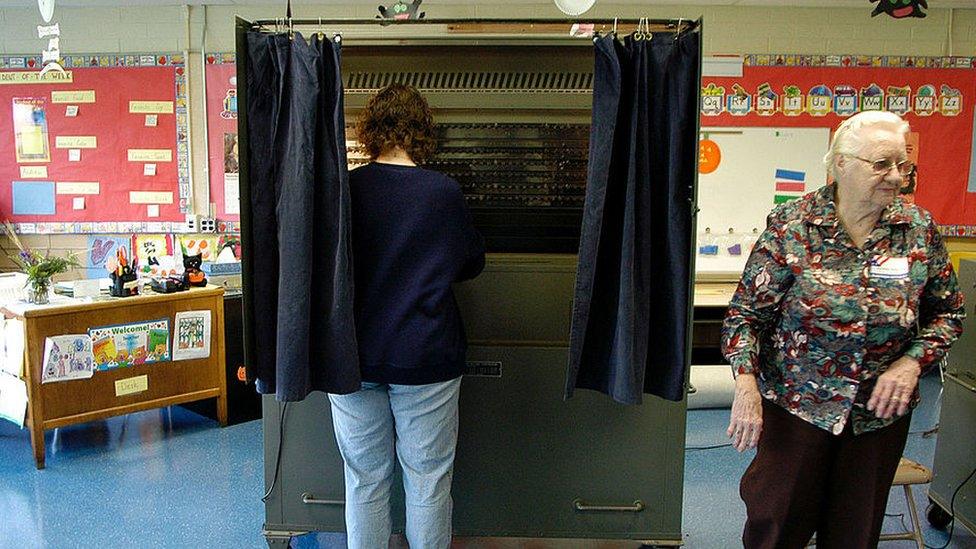
Pennsylvania largely relies on voting machines that were built in the 1980s
Even the process for obtaining a recount in Pennsylvania is cumbersome.
Unlike Wisconsin and Michigan, requests have to be filed on a precinct-by-precinct level with at least three voters in each delivering notarised affidavits to their local election clerk.
There are 9,163 precincts in Pennsylvania, and according to Ms Stein challenges have only been filed in 260 of them - a drop in the bucket, electorally speaking.
She has filed suit requesting a full recount.
Why do the recount costs keep rising?
A couple of weeks after the election, Ms Stein began her online drive to raise the necessary funds to move forward with the process, as all three states require the petitioning party to pay for the recounts.
So far she has raised more than $6.7m (£5.3m).
The campaign's original stated goal was to raise $2.5m, but that target has since jumped several times and now stands at $9.5m.
The fundraising page on Ms Stein's website said there were other costs than just those owed to each state, including fees for lawyers and statewide recount observers.
Wisconsin came back and said the recount would cost $3.5m, much more than initially expected.
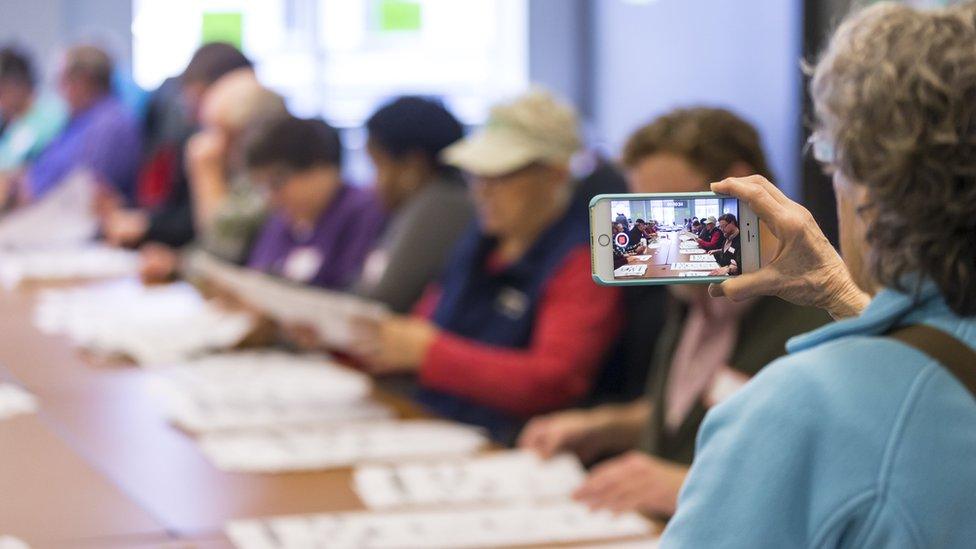
An observer films the recount in Dane County, Wisconsin
In Michigan, the Stein campaign has paid the legally required recount filing fee of $973,250, but the state attorney general says it could costs "millions".
What happens to any leftover money?
Ms Stein has stressed the cash raised is going into an account specifically designated for the recount campaign, not into a general campaign fund.
Amid questions about what would happen to any unused money, the campaign added a line to its website saying: "If we raise more than what's needed, the surplus will also go toward election integrity efforts and to promote voting system reform."
What is the Clinton campaign's position?
The Clinton team said it would co-operate with Ms Stein's recount efforts.
That only means the Clinton campaign will ensure it has representatives in any legal proceedings arising from the recount and observers on hand during the process.
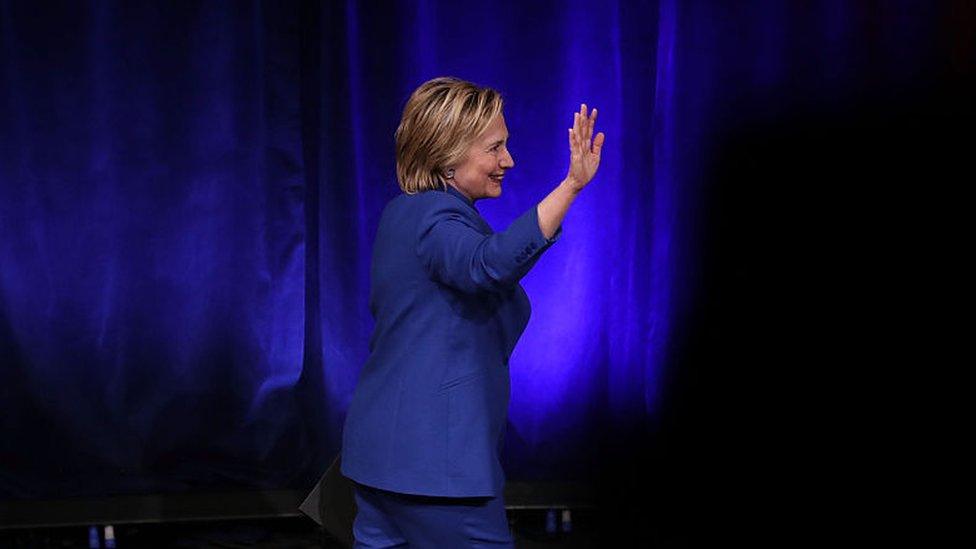
Hillary Clinton has kept a low profile since election day
"Because we had not uncovered any actionable evidence of hacking or outside attempts to alter the voting technology, we had not planned to exercise this option ourselves, but now that a recount has been initiated in Wisconsin, we intend to participate in order to ensure the process proceeds in a manner that is fair to all sides," Clinton campaign lawyer Marc Erik Elias wrote in a Medium post.
Mrs Clinton herself has kept silent on the matter - as have most of her top advisers.
How has Donald Trump reacted?
Attorneys for the US president-elect and his supporters have moved to block election recount efforts in Wisconsin, Pennsylvania and Michigan.
And if there's one thing the impending recounts have revealed, it's that post-election Donald Trump will behave largely like pre-election Donald Trump - quick to take to Twitter to air grievances and settle perceived slights.
He fired off a series of tweets accusing the Green Party of staging the recount to "fill up their coffers" and condemning Mrs Clinton for reneging on her promise to accept the results.
- Published24 November 2016
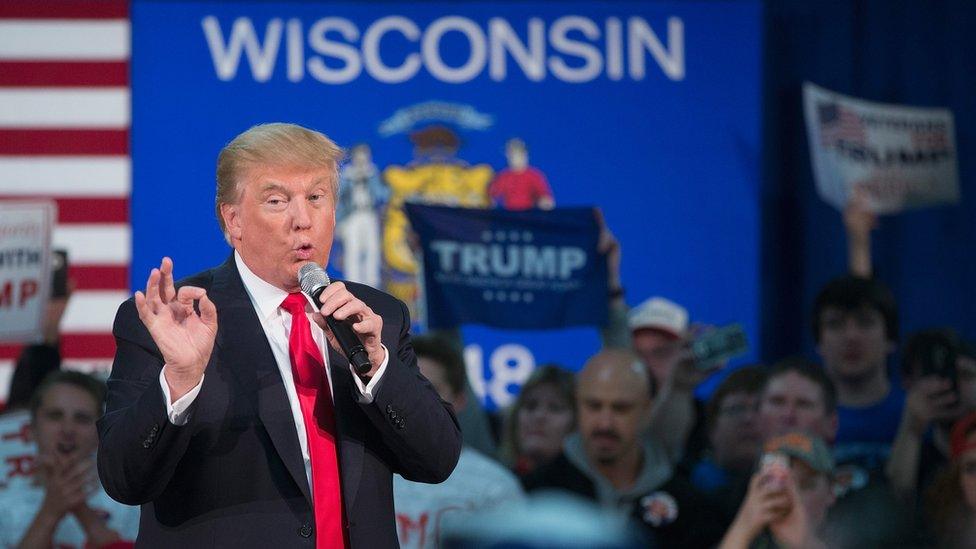
- Published27 November 2016
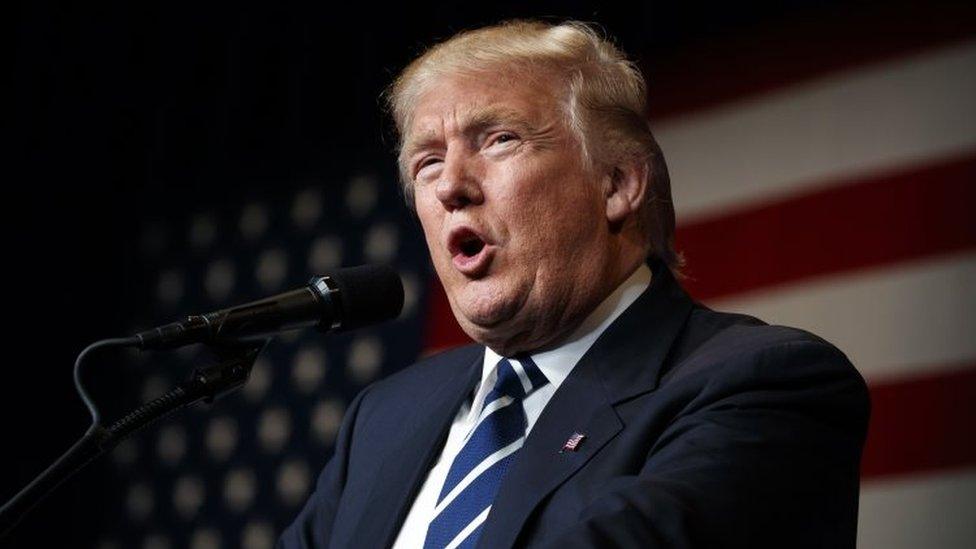
- Published28 November 2016
